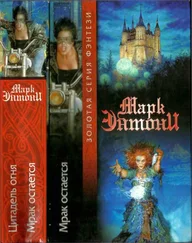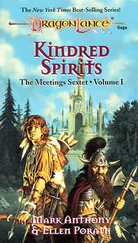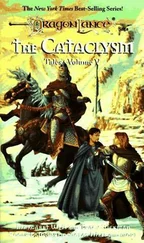Марк Энтони - The Cataclysm
Здесь есть возможность читать онлайн «Марк Энтони - The Cataclysm» весь текст электронной книги совершенно бесплатно (целиком полную версию без сокращений). В некоторых случаях можно слушать аудио, скачать через торрент в формате fb2 и присутствует краткое содержание. Год выпуска: 1992, Жанр: Фэнтези, на английском языке. Описание произведения, (предисловие) а так же отзывы посетителей доступны на портале библиотеки ЛибКат.
- Название:The Cataclysm
- Автор:
- Жанр:
- Год:1992
- ISBN:нет данных
- Рейтинг книги:5 / 5. Голосов: 1
-
Избранное:Добавить в избранное
- Отзывы:
-
Ваша оценка:
- 100
- 1
- 2
- 3
- 4
- 5
The Cataclysm: краткое содержание, описание и аннотация
Предлагаем к чтению аннотацию, описание, краткое содержание или предисловие (зависит от того, что написал сам автор книги «The Cataclysm»). Если вы не нашли необходимую информацию о книге — напишите в комментариях, мы постараемся отыскать её.
The Cataclysm — читать онлайн бесплатно полную книгу (весь текст) целиком
Ниже представлен текст книги, разбитый по страницам. Система сохранения места последней прочитанной страницы, позволяет с удобством читать онлайн бесплатно книгу «The Cataclysm», без необходимости каждый раз заново искать на чём Вы остановились. Поставьте закладку, и сможете в любой момент перейти на страницу, на которой закончили чтение.
Интервал:
Закладка:
“Set the lads to clearing away those fallen shrouds,” Dunvane said.
First Mate Norry croaked the order, then asked his captain, “As we’re short-handed, sir, will we be puttin’ back for Palanthas?”
Dunvane squinted into the billowing clouds. “Nay. We’ve come more than halfway. It’s better to make for Gardenath, on the Istar coast.” He shook his head and tugged thoughtfully at his dark brown beard. “I haven’t a clue where we are, Norry.”
“Surely the Solamnic coast lies south,” offered the mate, pointing over the starboard rail.
Dunvane was not sure of anything, and said so.
“Well,” Norry said, “at least the cargo is safe.”
Dunvane looked at the reason for their voyage. Lashed to the deck hard by the mainmast was an enormous bowl, carved out of serpentine stone by master artisans in Palanthas. Dunvane and his crew were being well paid to ferry this stone bowl from Palanthas to Istar. The sight eased Dunvane’s fear.
“I’ll speak with the Revered Son,” the captain said. “He’ll know what’s going on. In the meantime, keep the men busy. Don’t give ’em time to think too much.”
“Aye, aye, sir.”
Dunvane circled the serpentine bowl, watching the iridescent colors flare and die on its surface as he moved around it. Although made of stone, the bowl was remarkably light, in part because of the skillful fluting of the underside. It was seven feet in diameter and two feet deep in the center, yet four Palanthian stevedores had loaded it without strain. Once the captain was satisfied that its lashings were intact, he went aft to the sterncastle.
A gust of wind disturbed the eerie calm. Something borne on the wind pattered on the deck and stung his face. He stared at it—fine, black dirt. Here was a fresh wonder—a shower of dirt this far out at sea! The wind swirled and stole the dark dust from his sight.
Dunvane hurried aft and knocked loudly on the stern cabin door. “May I enter?” he called.
“Yes, come.”
Dunvane pulled off his knitted wool cap and raised the latch. The cabin inside was hot and dark. The sole candle had gone out. Dunvane’s eyes adjusted to the lack of light, and he saw a pale face emerge from the shadows near the cabin berth.
“Are you well, Revered Son?”
“I am well, Captain.” The passenger stood and stepped into the well of faint light from the open door. A tall, ascetic-looking man, not yet thirty years of age, his fair skin and blond-white hair shone in the gloom. Despite the violence of the night, he appeared remarkably composed. His white priestly robes were neatly draped around his narrow shoulders, and his hair was smoothed back from his forehead. Composure came easily to Revered Son Imkhian of Istar. He wore it as part of the costume of his office.
Seating himself at the table in the center of the cabin, Imkhian asked in a calm, deep voice, “What has happened?”
Dunvane opened the side shutters and let diffuse red light fill the cabin. “A storm like no other I ever encountered in my life, Revered Son. I shot the stars just before eight bells, and everything was as calm as a farmer’s pond. The sky was fair. Then the lookout called, ‘Fire! Fire!’ ‘Whereaway?’ says I. ‘In the air,’ says the lookout.”
“Fire in the sky? Most strange,” Imkhian said coolly. “Then what?”
“A great globe of fire fell into the sea, and a burning hot wind struck us.” Dunvane went on to enumerate his losses—sailors, sails, rigging. “But your special cargo is safe, Revered Son, safe and undamaged.”
The priest nodded. “That is well. The Kingpriest himself is expecting the serpentine bowl before the great Festival of Purification.”
“If I may ask—what is it for?”
Imkhian folded his hands. “It will be placed in the great temple in the center of the city, and there an eternal flame will be kindled. That is why it must be made of serpentine; any other stone would eventually crack under the continuous heat.”
Cries outside interrupted the priest. “Heave away!” yelled a voice, and there was a loud crash. The ship slowly righted itself.
“The men have cut away the broken foremast that was making us list,” Dunvane explained. “The hull is undamaged.”
“How will we proceed without sails?”
“There is spare cloth on board. We’ll patch together a small sail, Revered Son. We are being drawn by a current. Our progress will be slow, but we can proceed.”
Imkhian frowned, his pale blue eyes narrowing. “Time is short, Captain. The voyage was only supposed to last a week.”
The captain shifted nervously, his head still bent in a posture of deference. “No one could have foreseen the tempest last night, but I don’t think it will delay us more than a day. But … Revered Son, what could that globe of fire have been?”
The priest looked thoughtful. “Forces of evil are rampant, Captain, and the work of our great Kingpriest is often threatened. Since the Proclamation of Manifest Virtue, evil sorcerers have plotted to stop this great cleansing work. Perhaps some wizard sought to prevent the serpentine bowl from reaching Istar.” Imkhian drew himself up taller, his eyes glinting proudly. “But the will of the Kingpriest is not easily thwarted.”
“May his blessings continue upon us,” Dunvane murmured with feeling.
Imkhian frowned and studied the sea captain intently, as if searching for some sign of insincerity. Dunvane shifted uneasily.
“Ahoy! Shipwreck, ahoy!” came a cry from on deck.
Bowing, Dunvane hastily quit the cabin, jamming his hat back on his head. The mate and the other two members of his crew stood at the starboard rail, peering into the murk. The first mate put his hands around his mouth and crowed again, “Shipwreck, ahoy!”
Then the captain saw it. Lying very low in the water, some thousand yards off, was a dark, floating object. It resembled a fair-sized vessel, lying on its beam ends.
“Is the helm answering?” asked Dunvane.
“Aye, Captain, but without sheets, we’re flowing with the current,” Norry replied.
“That will do. Bring her about, four points to starboard.”
Sluggishly, the Sunchaser turned its bluff bow toward the distant wreck. The smoky dust hanging in the air parted silently as the Sunchaser glided along.
“Two points more,” called Dunvane. He climbed the rigging and clung to the shrouds, studying the wreck as they came steadily closer. From his loftier perch, he saw that the sea ahead was flecked with flotsam of every kind: tree branches, boards, straw, bottles, the carcasses of drowned animals. Norry steered the ship until the bow was dead-on to the half-sunken vessel.
The water was muddy, a turbid brown mixture. It was impossible to see the usual changes in sea color that warn of shallows. Dunvane stared hard at the water, praying they wouldn’t run aground.
“Keep us off that wreck,” ordered the captain. “I don’t want to foul her.”
A sailor went forward with a hefty boat hook in hand. At the last moment, Norry spun the wheel, and the Sunchaser sheered left of the wreck.
A figure rose up on top of the hulk and waved both arms.
“Bring him aboard!” shouted Dunvane, and the sailor with the boat hook held it out to the castaway. The mudcoated figure threw both arms around the pole. The sailor levered him up and around.
Dunvane’s attention was drawn from the rescue by a scraping sound below him. He looked down to where the side of the Sunchaser was brushing against the wreck. Tufts of hay, tied with string, broke loose and floated away from the sunken ship. Bundled straw … thatch from a roof …
“I’ll be damned!” Dunvane exclaimed. “That’s no ship! It’s a house!”
Читать дальшеИнтервал:
Закладка:
Похожие книги на «The Cataclysm»
Представляем Вашему вниманию похожие книги на «The Cataclysm» списком для выбора. Мы отобрали схожую по названию и смыслу литературу в надежде предоставить читателям больше вариантов отыскать новые, интересные, ещё непрочитанные произведения.
Обсуждение, отзывы о книге «The Cataclysm» и просто собственные мнения читателей. Оставьте ваши комментарии, напишите, что Вы думаете о произведении, его смысле или главных героях. Укажите что конкретно понравилось, а что нет, и почему Вы так считаете.
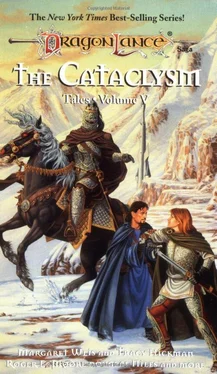

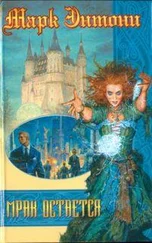


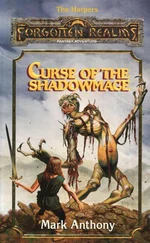
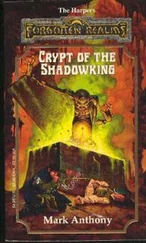
![Марк Энтони - Цитадель огня. Мрак остаётся [Авт. сборник]](/books/103986/mark-entoni-citadel-ognya-mrak-ostaetsya-avt-sbo-thumb.webp)
